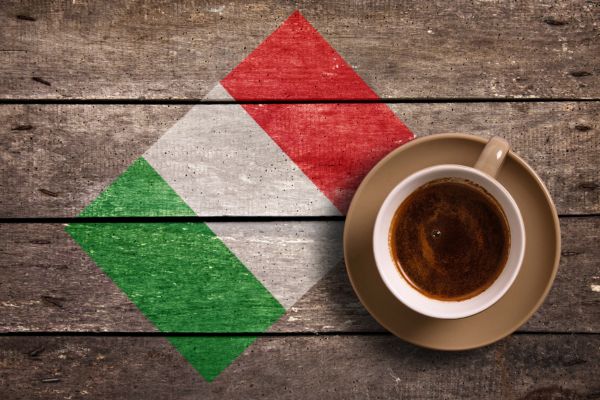In the picturesque lanes of Italy, brimming with history and culture, one finds an aroma that captivates the senses and a taste that lingers on the palate, forming the heart of countless moments in daily life – it is the taste of coffee. The vibrant coffee culture of Italy is a deeply ingrained part of its heritage and an experience that is cherished by locals and tourists alike. Italy’s love affair with coffee is not a newly blossomed romance but a time-honored tradition that dates back to the 16th century, standing as a testament to the country’s penchant for blending the old with the new, the traditional with the innovative, in every aspect of life.
Every day, as the sun peeks over the horizon, Italy wakes up to the rich scent of brewing coffee, signaling the start of a new day. From the bustling cities of Rome and Milan to the serene landscapes of Tuscany and Sicily, the espresso bars open their doors to the world, each cup served holding within it a piece of Italy’s rich coffee heritage. Whether it’s the robust espresso shot that powers the busy weekday mornings or the frothy cappuccino that accompanies the leisurely weekend brunch, coffee in Italy is much more than a mere beverage – it’s a way of life, a celebration of tradition, and an integral part of the day’s rhythm.
Italy’s coffee culture, characterized by a finely honed balance of tradition and innovation, has shaped not only the coffee habits of the Italians but has had a profound impact on how the world perceives and enjoys this beloved beverage. From the historic coffee houses of Venice that witnessed countless intellectual debates to the modern espresso bars dotting the urban landscapes, the journey of coffee in Italy is as rich and invigorating as the beverage itself.
In this article, we take you on a journey through the enchanting world of Italian coffee culture. We explore its historical roots, the social significance of the coffee houses, the evolution of brewing techniques, the role of coffee in Italian cuisine, and the fine art of coffee making. We delve into the stories of the iconic coffee brands that originated from Italy and have left their mark on the global coffee scene. We learn about the diverse range of Italian coffee drinks and the etiquette associated with consuming them. Lastly, we look towards the future, exploring the changes shaping the Italian coffee scene. Join us as we discover what makes Italian coffee culture a cherished tradition, a symbol of hospitality, and a lifestyle that resonates across borders and generations.
The Arrival of Coffee in Italy
When coffee first arrived in Italy in the 16th century, it was met with both fascination and apprehension. Venetian merchants brought this exotic drink from the Middle East, sparking curiosity among the locals. In the early days, coffee was considered a luxury good, accessible only to the wealthy, but its popularity rapidly spread as it trickled down to the masses. Coffeehouses, known as ‘bottegas,’ started cropping up in the late 16th century, creating social spaces that transformed Italy’s cultural landscape.
The Emergence of Coffeehouses
The coffeehouse, or ‘bottega,’ was not just a place to drink coffee; it became an integral part of Italy’s social fabric. These coffeehouses were popular gathering spots where ideas were exchanged, and philosophies debated. They served as platforms for business negotiations and political discussions, and their impact on society was profound. Today, the tradition of the bottega continues to thrive, with coffeehouses remaining a cornerstone of Italian life.
Espresso: A Revolution in Coffee Brewing
The birth of the espresso machine in the early 20th century marked a significant turning point in Italy’s coffee culture. Invented by Angelo Moriondo of Turin, Italy, this machine used steam to force water through coffee grounds, producing a concentrated coffee beverage in just a few seconds. This swift brewing method was revolutionary, giving birth to the ‘espresso,’ a term which fittingly means ‘fast’ in Italian.
The Role of Coffee in Italian Social Life
Coffee holds a central place in Italian social life. It’s a symbol of hospitality and camaraderie, an excuse for a break, and a reason for conversation. The rhythm of the day in Italy is often punctuated by coffee breaks, each with its own unwritten rules and customs. From the morning ‘caffe’ taken standing at a bar to the post-meal ‘espresso,’ each cup represents a moment of daily life.
Coffee and Italian Cuisine: A Harmonious Blend
Coffee isn’t just a stand-alone beverage in Italy; it’s a vital part of the culinary landscape. The tradition of concluding a meal with a shot of espresso is widespread, thought to aid digestion. Coffee is also a star ingredient in many Italian desserts, from the internationally beloved tiramisu to the lesser-known, but equally delectable, ‘affogato,’ where a shot of hot espresso is poured over a scoop of vanilla gelato.
The Art of Italian Coffee Making: Baristas and Their Craft
The role of the barista in Italy is both respected and crucial. These skilled coffee makers are the backbone of the Italian coffee experience. They have the knowledge and the skill to brew the perfect espresso, steam milk to the right consistency for cappuccinos, and pour the coffee with an artist’s precision. The craft of a barista is akin to a performance, captivating customers as they wait for their cup of Italian magic.
Iconic Italian Coffee Brands and Their Stories
From Lavazza’s establishment in Turin in 1895 to Illy’s birth in Trieste in 1933, Italy is home to some of the world’s most recognized coffee brands. These brands have not just contributed to the country’s coffee culture, but have also significantly influenced the global coffee scene. They have been instrumental in innovating coffee brewing methods and promoting coffee culture worldwide, carving out a distinguished place for Italian coffee on the global stage.
The Variety of Italian Coffee Drinks
Italian coffee culture is defined by a rich tapestry of beverages. There’s the ‘espresso,’ a shot of highly concentrated coffee; the ‘cappuccino,’ espresso with hot milk and steamed milk foam; and the ‘macchiato,’ espresso marked with a spot of milk. The list is extensive, with each drink holding its own unique place in the Italian daily routine.
Coffee Etiquette in Italy: Dos and Don’ts
Coffee etiquette in Italy is an essential part of the culture. For instance, it’s common to drink espresso quickly while standing at the bar, especially in the morning. A ‘cappuccino’ is traditionally a breakfast drink and ordering one after lunch or dinner is seen as a gastronomical faux pas. These traditions and rules not only illustrate the rich tapestry of Italian coffee culture but also show the Italians’ deep-rooted respect for coffee.
The Future of Italian Coffee Culture
Despite its deep-seated traditions, Italian coffee culture is not immune to change. The emergence of specialty coffee and the increased interest in sustainable practices are reshaping the industry. Coffee shops offering non-traditional brewing methods are sprouting up, and more and more Italian roasters are turning to ethically sourced beans.
Conclusion
As we draw this exploration of Italian coffee culture to a close, it becomes clear that the simple act of enjoying a cup of coffee in Italy is a profound experience – a rich tapestry woven from the threads of history, tradition, community, and craftsmanship. The art of coffee making, passed down through generations, is a testament to the Italian’s unwavering dedication to quality, simplicity, and the joy of shared experiences. It is the symphony of these factors that has given birth to the vibrant, deeply ingrained coffee culture that Italy is celebrated for today.
Every Italian espresso, every cappuccino, each caffè macchiato is not just a beverage, but a celebration of a lifestyle, an expression of a community’s bond, a nod to a cherished tradition, and a tribute to the fine art of living. This culture reaches beyond the physical confines of Italy and spills over into the world, impacting how we all appreciate, experience, and enjoy this universal drink. It is a culture that embraces everyone, from the casual coffee drinker to the passionate aficionado. It thrives in the past, flourishes in the present, and constantly evolves to shape the future of coffee around the globe.
Looking forward, the Italian coffee culture remains resilient, steadfast in its commitment to quality, and passionate about preserving its rich traditions. At the same time, it continues to innovate and adapt, welcoming changes that enhance the coffee experience while keeping the spirit of the tradition alive. Whether it is embracing sustainable practices in coffee production, experimenting with new brewing methods, or creating inventive coffee-based recipes, Italy’s coffee scene is continually reinventing itself while staying rooted in its history.
As we enjoy our cups of coffee, whether seated in an Italian piazza, a café elsewhere in the world, or in the comfort of our homes, we are partaking in a ritual that is as old as Italy’s cobblestone streets. We are keeping alive a tradition that celebrates not just the coffee bean, but the human connection, the love for craftsmanship, and the sheer joy of savoring the moment. So, the next time you hold a cup of coffee in your hands, take a moment to appreciate the journey it has made, the history it carries, and the culture it represents. Because in Italy, coffee isn’t just a drink – it’s a way of life.



